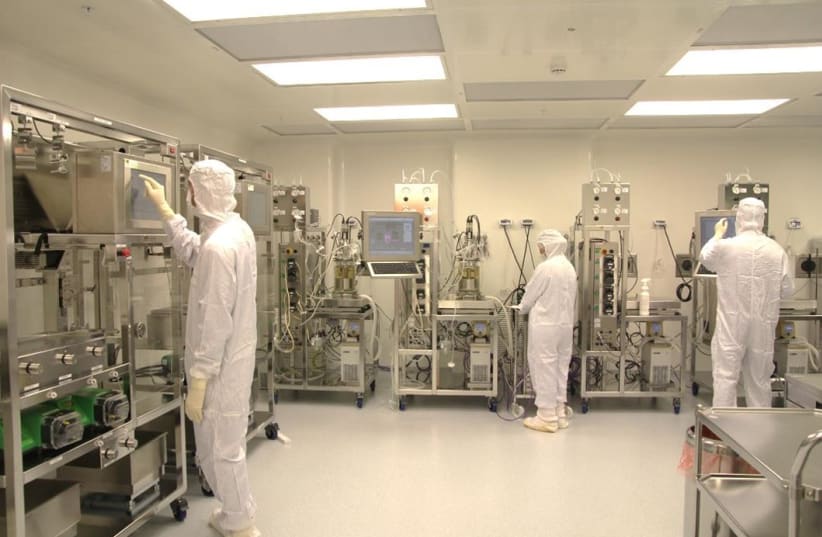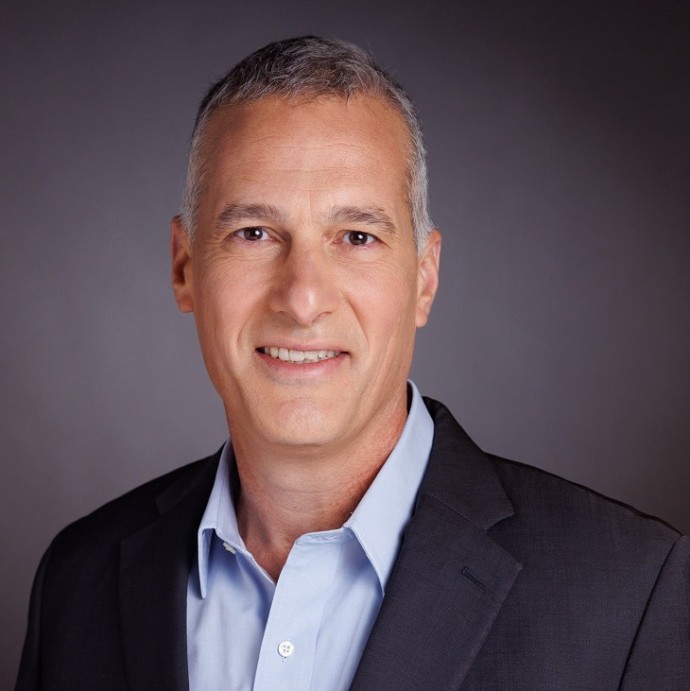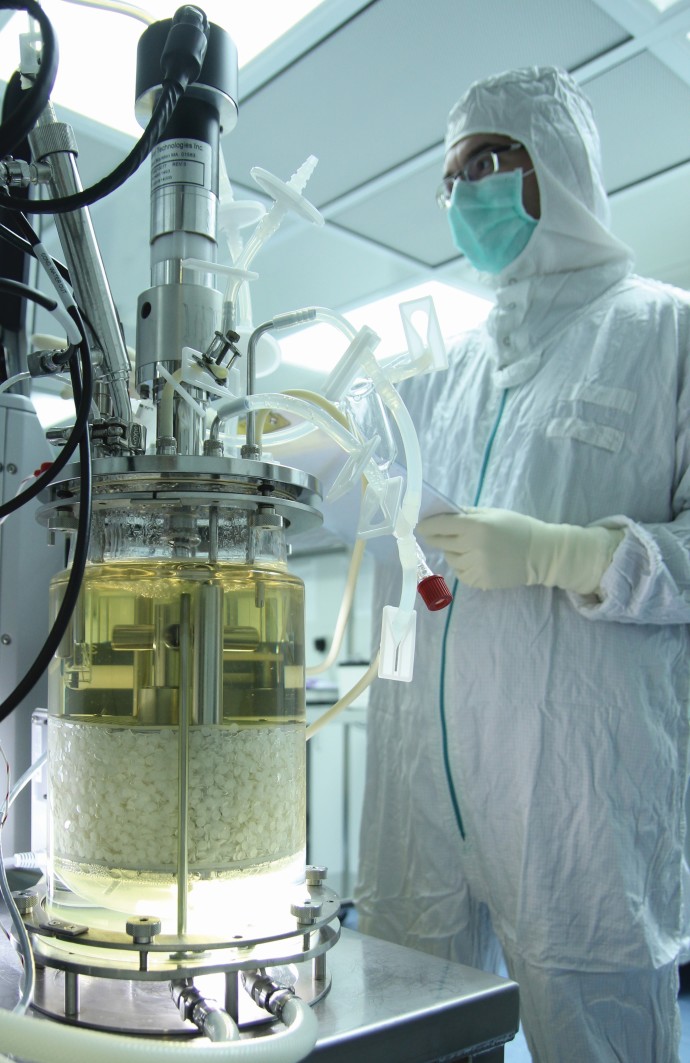Pluri, a leading biotechnology company that specializes in the production of cell therapies for the pharmaceutical sector, is expanding its activities and establishing strategic collaborations for the development and marketing of food-tech and pharmaceutical products, with the intention of harnessing its technology for additional industries such as agritech, biologics and more.
“Our significant knowledge and understanding of cell expansion in a unified form and at mass-scale is an asset that many industries require in order to grow and develop cell-based products,” says Yaky Yanay, CEO and President of Pluri. The company is traded on Nasdaq and the Tel Aviv Stock Exchange.
Pluri was established in 2003 under the name “Pluristem” and operates in the field of regenerative medicine, with unique product candidates developed using cells derived from the human placenta.
The company owns a cell manufacturing plant in Haifa and has advanced technological capabilities that enable broad cell propagation and growth, including a state-of-the-art three-dimensional (3D) system that mimics cells’ natural environment, which sparked new ideas for strategic growth among its decision-makers.
“We realized that one of our most significant advantages is our technology,” says Yanay. “In the past, we thought of ourselves as a pharma company. But when we looked ahead, we realized that we are much more of a technology company.”
“We led extensive internal efforts to identify new areas that our technology can advance,” he adds. “We identified 4-5 different industries that we can affect and contribute to significantly. In the past year, we have further developed our technology, trying to gauge its robustness and the limits of the sectors in which we can operate. We checked with our staff whether we can grow different types of human, animal, and plant cells efficiently, and we received a positive technological feedback.”
Pluri’s new strategy is to operate in a variety of sectors in addition to the medical field. The first sign of this shift came in January, when the company announced a landmark collaboration with Tnuva. The two established a joint venture, the first stage of which is engaged in developing a technological platform for growing cultured meat, with the possibility of expanding into the field of cultured fish and dairy.
“This was actually the first time we introduced the new strategy and the realization of our technology in a field that is not pharma, and it was important to us that it be practical, and not just theoretical,” says Yanay. “We decided to move forward in the field of cultured meat as the first project because we identified a huge opportunity and a significant technological gap in the industry. We know how to work with cells, and we have seen that we can advance in this market quickly and demonstrate our capabilities.”
“We chose to work with Tnuva because we were comfortable collaborating with someone who is a strategist which brings added value and deep knowledge of the target market. Our concept is based primarily on technology and strategic partnerships,” Yanay explains. “We understand cells, how they grow, what they need, and how to expand them effectively. Now you have to bring the other side of the equation, which is a partner or a strategic collaborator – someone who understands food, who can characterize the end product, and who understands the supply and flavoring of this kind of product. Together with Tnuva, we built a joint company with a seasoned management and research and development team. We are already seeing results and are very pleased with the pace of our progress. The goal of the venture is to show the capabilities of our technology, and we have a great deal of confidence that we will be able to produce more products for more industries quickly and efficiently.”
No longer just pharma
Pluri (formerly known as Pluristem) began as a company engaged in the production of cell therapies for medical purposes. But with the changes and challenges that the world is facing, it became clear that Pluri’s technology opened up countless possibilities for collaborations.
The bioreactor developed at Weizmann Institute and the Technion is at the heart of their technology. The idea was that placenta cells should grow in an environment similar to the human body, rather than a petri dish, with full control over all parameters – from temperature to PH level and much more. Pluri acquired the rights to the technology and, over the years, developed production and creative processes protected by more than 130 active, granted patents.
“We have had substantial opportunities in recent months,” says Yanay. “Part of the change of our company name to Pluri is due to the word plurality, which is intended to emphasize that we can be active in a wide variety of industries.”
'Pluri is developing cell-based solutions for a variety of industries, promoting global wellbeing and sustainability'
Yaky Yanay, CEO and President of Pluri
“We really love the world of pharma, and we plan to continue the development of cell therapy product candidates,” Yanay adds, “but it’s becoming just one of the industries in which we operate. Within the pharmaceutical area, too, we have significantly refined our strategy. In the past, we were inclined to conduct phase three clinical studies and long-term investments, but we have now decided to focus on early-stage collaborations. This follows a number of studies in recent years in which we did not receive the desired results. We will follow the same logic there as we do in the other industries.”
“We are experts in cells,” explains Yanay. “We know what to do with them, and we understand what these cells can do. Our goal is to connect with companies or commercial partners at relatively early stages, which will help us get to know the market and bring the products to it. Our ability, especially in pharma, is to produce cell-based products for different indications, which increases the competitive advantage of the company. The new branding remains close to the original company name because we are very proud of what we have achieved over nearly twenty years, but it clarifies that today we are much more than that. We have a broad platform that will meet many needs.”
“Our technology was refined during the last two decades around the concept of how cells can be grown efficiently and in a unified manner. It is true that we began our journey in the world of pharmaceuticals, but the great advantage of our 3D technology is that it can expand various cell types in large quantities. The advantage of our systems is that they are very efficient in the consumption of raw materials. You produce more cells with each unit of energy that you use.”
Saving the Globe
Pluri’s technology, which simulates the natural growing conditions of a cell – whether it comes from a living person, an animal, or a plant – has opened up a world of possibilities for the company.
“We realized that we have something that we can expand,” says Yanay. “Our platform rests on a broad patent base and a great deal of knowledge and understanding of how to work on a large scale. Food-tech companies are raising hundreds of millions of dollars to develop this technology, which will take years. We’ve already done that, so our time to market is faster.
“Every living thing in this world – person, animal or plant – is made up of cells, and this gives us many possibilities,” he says. “Cells are the building blocks of life, and if we possess the knowledge to grow and multiply them, the possibilities extend to the worlds of food, medicine, biologics, agriculture and practically everything you can think of.”
Yanay adds that one of the most burning issues in the world today is sustainability, especially in light of the climate crisis, which has driven many companies, organizations and countries to recalibrate their priorities.
“The world is currently preoccupied with the great food crisis it is experiencing, and some countries are affected by it differently. We want to operate in a world of food security and assist with local production,” he explains, “so those countries will be able to get the same consumption, but without being dependent on livestock or growing crops. Our goal is to use cells to improve our quality of life as human beings and also to save and preserve the planet. This will occur only if company owners and business leaders join together. I am delighted to see the technological progress and the leveraging of existing budgets, which makes me optimistic that we will be able to do this relatively quickly. We can contribute in many areas, such as reducing the amount of water used in conventional agriculture and healthy products in the meat substitute market.
“Another issue that has been gaining focus in the past year is marine life and the massive destruction of marine ecosystems, which affects us in an extreme way. There, too, we can contribute. Our technology makes it possible to produce rare, hard-to-obtain components that can have a significant impact on the environment.”
This article was written in cooperation with Pluri.
Translated by Alan Rosenbaum



